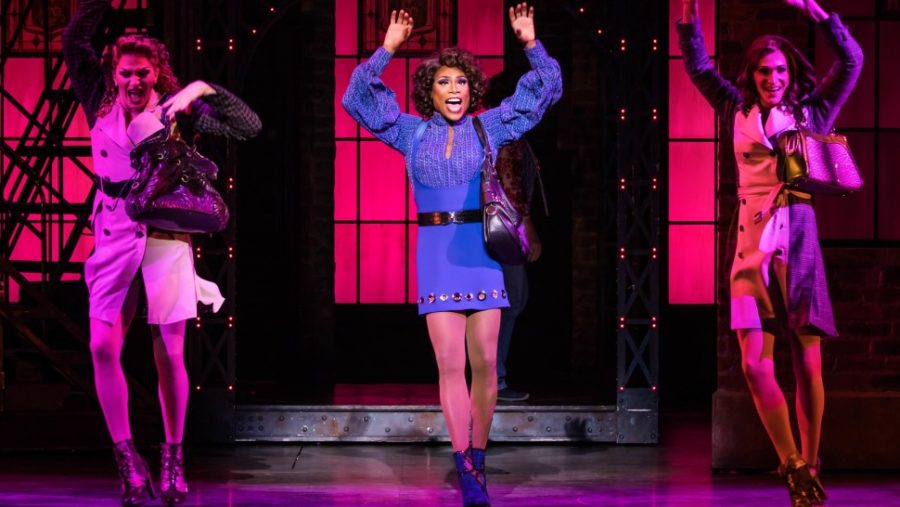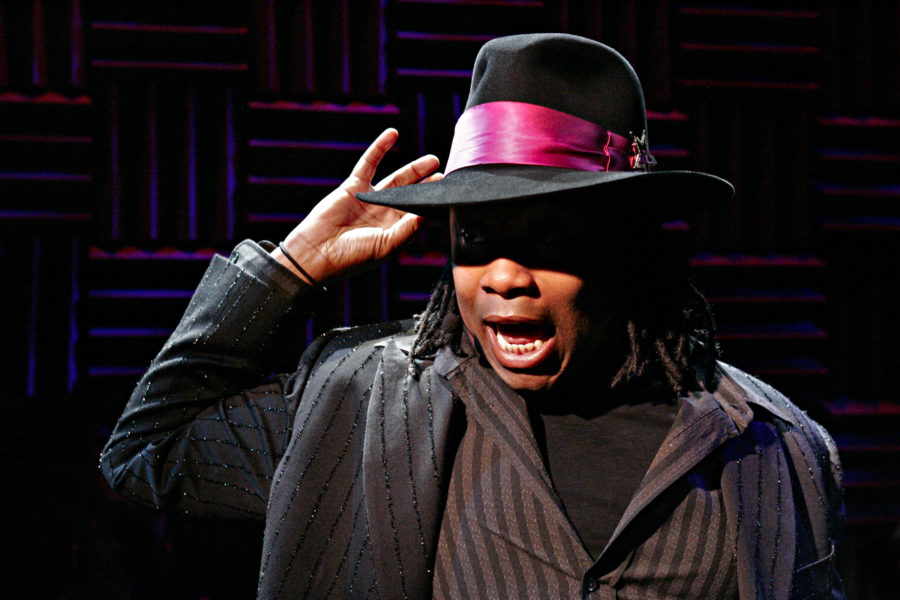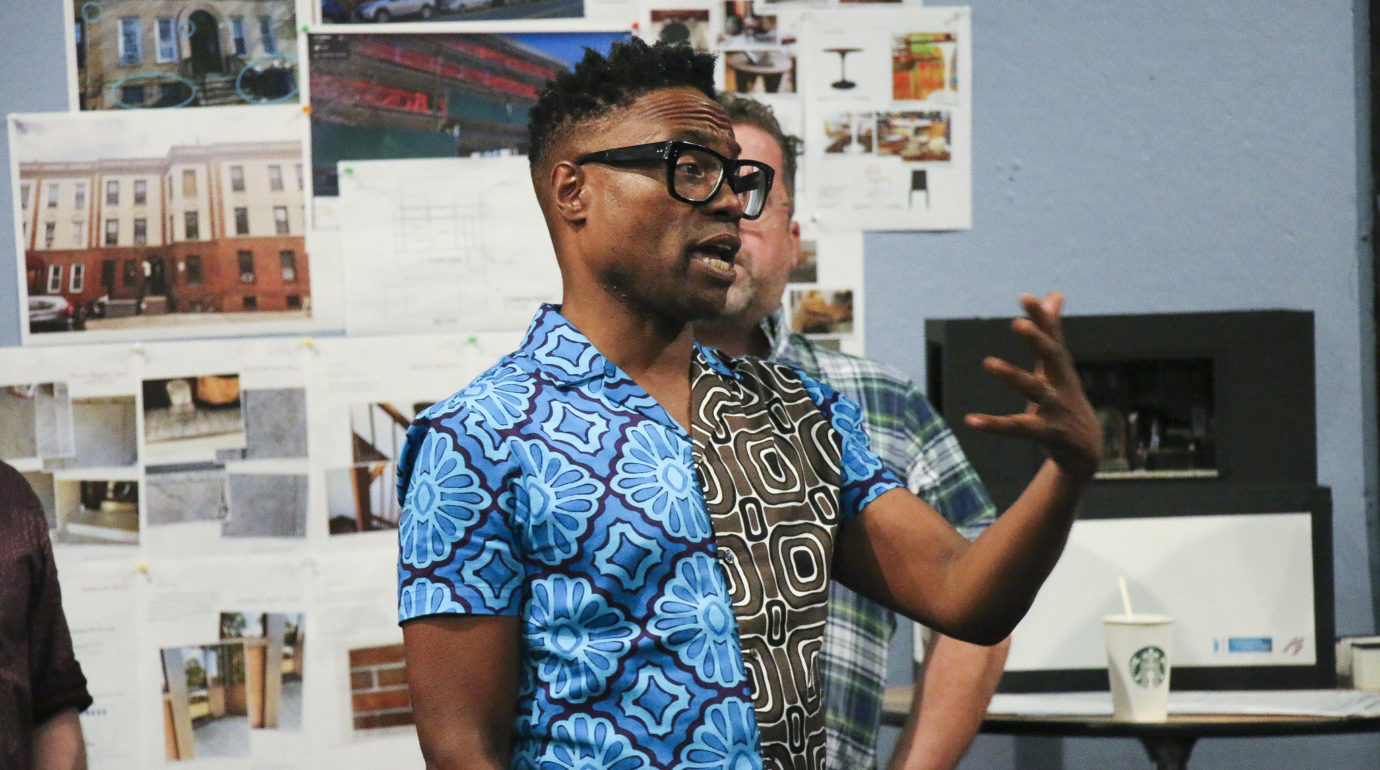When Billy Porter speaks, you can’t help but pay attention. Even in a private one-on-one conversation, he’s boisterous, passionate, and prone to repeat himself for emphasis. For instance, when asked about why he’s doing theatre after the momentous year he’s had on television, Porter responds, “The reason why I’m sitting here talking to you and not dead, or not in jail, is because the theatre saved my life.” He adds, for emphasis: “Period. The theatre saved my life.”
As the emcee Pray Tell on FX’s “Pose” (which you can also watch on Netflix), Porter has earned Golden Globe and Emmy nominations. He’s also become something of a fashion icon: He wore a gown to the Oscars and was literally carried into the Met Gala.
But long before his newfound fame, Porter was an artist trying to create a life in the theatre. He won a Tony for Kinky Boots, directed regionally, and even wrote two plays (Ghetto Superstar and While I Yet Live). Now more financially secure, Porter is determined to pay tribute to the art form that made him fall in love with performing.
This month he’s directing The Purists by Dan McCabe at Huntington Theatre Company in Boston (Aug. 30-Oct 6), a new play about the unlikely friendship among a rapper, a DJ, and a musical-loving senior citizen. A play he wrote, Untitled Sex Project, was supposed to go up in the fall Off-Broadway but has been postponed (Porter promises it will be produced eventually).
Below, Porter talks about his new career goals, the current state of Black gay male representation, and letting the two-spirit run free.
DIEP TRAN: Why did you choose to direct The Purists?
BILLY PORTER: What touched me about it is it’s about people from totally opposite ends of the spectrum coming together and getting along, and choosing to honor each other’s diversity. And, that’s an example of something that we need to see today, because there’s so much hate out there. The characters don’t get into the hate. They move beyond what could possibly turn into hate and turn it back on itself, into understanding and ultimately, love.
It seems to be also about the ability of art to connect different groups of people.
There’s also the component of: what does it mean to hold on to what’s pure about yourself or what’s pure about a culture, and not give that away. Once we put the art out there the hope, ultimately, is that it affects as many people as it possibly can. I know with my art, that’s what I want—I want to affect as many people as I possibly can and change something inside of people so that the world can be a better place.
It’s funny that you talk about wanting to reach as wide a group as possible, since not as many people can see your theatre work as what you do in TV.
I’ve been in the theatre for over 35 years. I couldn’t get on TV till last year. TV is as influential as you can get, as far as being watchable. But in terms of how I can effect change, theatre was my only place. When I lived in Pittsburgh in the ’70s and ’80s, that was the only art form that I could get connected to: theatre and music. And so theatre really, truly saved my life and I need to give credit to that form.

Tell me a little bit more about your relationship with the Huntington. This is the third thing you’ve directed with them, right?
Yeah, Peter DuBois and I were both working at the Public Theater under George C. Wolfe back in the early 2000s. Peter was a producer, and I had a writing/directing residency there. When he got the artistic directorship at the Huntington, he called and asked me to direct there. He believed in me. He has believed in me as a director from the very beginning. He’s one of the few who has given me the opportunity to exercise that muscle and become the best that I can be—because you can’t get better unless you have a space to practice. He’s given me a really safe theatrical home for me to expand my art and help everybody else understand what that expansion is.
How did you start directing?
I’ve always been a director. I mean, even when I was in college I was directing stuff. I didn’t know that I wanted to be a director. And the reality is, the work dried up in every other area for me. So I didn’t sit around and wait for somebody to give me a job. I actually challenged myself to go deeper. And that was inside of the directing, and inside of the writing. We are the arbiters of our own fate. I could have sat around and felt sorry for myself and become bitter, but instead I made different choices. And just tried to make a different place for myself in the world.
I think a lot of actors feel like it’s a very passive thing to have to wait for someone to give you an opportunity.
Yeah, I just got sick of that. I got sick of being at the whims of somebody’s mood. And I just thought if I can create it for myself, why not do that? And it’s taken me about 20 years for it to start to manifest.
You said something to Ebony in 2013 that’s really interesting to me. You said, “Just because you’re working does not mean you’re making money. That’s two different things in show business.” The thing I’ve noticed is, I’m friends with a lot of playwrights, and they all have to write for TV because theatre doesn’t pay very much, if at all.
Right.
How can theatre get better at fostering talent so artists don’t have to move to TV to make a living?
I really don’t know that it’s possible. The world is an immediate, visual marketplace right now. Film and television, they’re the leaders, financially. They have the money. Theatre doesn’t have money. That’s not the place where you make money. That’s the place where you get to process art, that’s the place where you get to do what you love. I love the theatre, but I don’t know how to fix that. I really don’t know. I wish I could. I wish I could. But it’s not a money-making venture.
And it doesn’t always need to be. Sometimes art for art’s sake is exactly what that is. I can’t tell you the countless number of things that I saw where I know people weren’t making any money but it changed my life! So you find ways to supplement your love of the theatre. Now I’m on television, now I can come back and do anything. Because I have enough money to sustain myself.
In the past six months you’ve sky-rocketed in terms of name recognition. Does fame make things easier or harder?
Larger opportunities have been coming in for me, and that’s really cool. Trying to navigate the space of private life versus public life is pretty interesting. It’s different. It’s new. I’m having a harder time on the subway. I’m having a harder time on the street. My anonymity has gone away. So I’m just trying to figure out how to deal with that transition gracefully.
I guess the other side of the scale is being able to choose what it is you want to do.
Yeah. I want to be the head bitch in charge! That’s what I want to be. And the way that I get to do it is really being a star, I guess. I don’t know what else to call it. It’s happening. And now that gives me the power to do all the other stuff that I want to do.
I want to be able to greenlight anything I want. I don’t want to have to worry about other people’s money. I don’t want to have to worry about other people telling me “no.” I don’t want to do that anymore. If I believe in it, I want to be able to say “Yes, and here’s the money to do it.” And I will choose things, when I’m in that position of power, that make a difference and that matter.
It seems like after Moonlight, there’s been a proliferation of representation of Black gay men onstage and on-screen. Do you think that’s enough? Where should we go next?
Well, I would challenge the word, “proliferation.” I would say it’s a start. We’ve begun a conversation. There’s nothing proliferating about it. Until we have as many Black queer stories as we have white cis gender stories, that ain’t no proliferation enough. But it’s better. Our story is getting told. It’s actually being told in the mainstream in a couple of places. So that’s good! And I want to make sure that it’s told in more than a couple of places. I want to make sure that it continues to get told.
You did a talkback for Michael R. Jackson’s musical A Strange Loop. What did you think of the show?
I loved it. It’s very honest and very smart. It was brutally honest and was completely the story that we live as Black queer men in this world. It’s truly the truth. And the world needs to see the truth—unfettered, unashamed, and unapologetic.
I read your play While I Yet Live and it seemed like there was a similar thematic strand between that and Strange Loop, in terms of religion and how it becomes a mechanism for shaming gay kids.
That’s the thing. That’s the thing. That is the big thing. There is nothing else to be said about it. It’s all about the church. And until the church, and people in the Black church in particular, realize that their dismissal of the LGBTQ community is the same as white people dismissing us as Black people, we’re never going to change. It’s never going to be any different. I don’t understand it. It’s a group of people who have been marginalized and discriminated against for centuries, turning around and doing the same thing to another group of people. It’s gross, it’s deceptive, and I’m not having it! It’s the same thing as white people saying, “You’re Black, so you don’t have any rights.” The fuck is that? And why do we keep doing it?

I sometimes think part of human nature is wanting to feel like you’re better than somebody else.
Of course! That’s always what it’s about. I’m not going to be the lowest on the totem pole, you are.
I always talk about the two-spirit. Every indigenous culture had the two-spirit in the village that was the one who spoke to the spirits, who protected the colony. It feels like the only thing that this group of people have held onto from the colonizers, bringing in their Bible, is the discrimination against the two-spirit, which ends up being the queer people. I don’t understand it! I don’t understand how you can have Wakanda, and all your Black African pride, and not talk about the two-spirit that was in that culture. It’s absent from that Black Panther narrative. How do you do that?
Where do you think money comes into that?
It’s always money. It’s always money. The only reason why LGBTQ stories are being told is because they’re making money. If they weren’t making money, they wouldn’t be told, make no mistake about that. When you can monetize yourself, then you are heard. Period.
My last question is from The Purists: If you could get rid of one of these four people, and their contributions, from history, who would it be: Jerome Kern, Richard Rodgers, George Gershwin, or Stephen Sondheim.
I can’t get rid of one of those four people! I can’t play this game because there’s too much—I can’t, I can’t. I can’t do it. If I was playing the character I could do it. What would yours be?
Kern. His body of work isn’t as—
But it can’t really be Kern because he started the whole thing. You know, musical theatre was not integrated until Show Boat. There would be no form if that hadn’t come along. His body of work might be a little less than, but the form exists because of him.
That’s true, but you don’t think Rodgers and Hammerstein could have figured it out on their own?
But they didn’t. It was him! That’s not how it went. See, this is the argument that we could have in the play.


